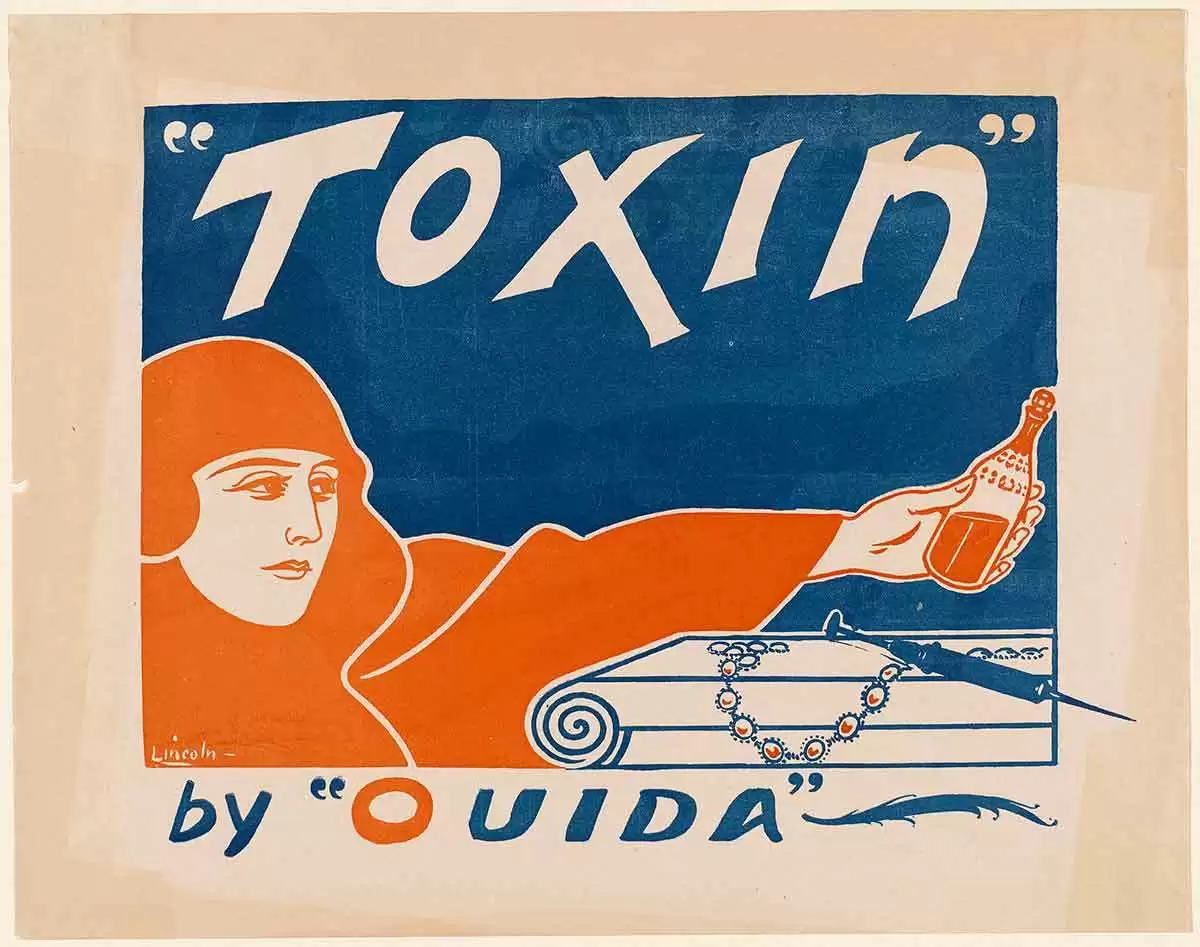
Celiac.com 10/22/2021 - The iceberg starts by scratching the hull. The captain and crew had early warning signs but it all happened so quickly from there. The destruction continues on and the hull is breached, allowing water to rush in. We are seeing this happen now. People are starting to perish aren‘t they? Next, the boat starts to list to starboard. Passengers are abandoning ship while the crew goes into emergency status. The pumps are started and priorities set. It's a bit chaotic but many are still being hopeful and thinking positively. Those with vision imagine the worst-case scenario and act accordingly. "I think we can patch this thing up if we back away now and try not to drive this rock any deeper."
Unfortunately, this is man's ‘M.O.", isn't it? We do have to hit the iceberg before we learn many of the important things in life. Well, we have hit them and hit them hard. As I stated so melodramatically in the opening, you are alive to see the paradigm shift that has resulted from hitting this iceberg. The ship is going down. One drug after another has been placed under "the microscope" and failed the acid test. The cans are all falling off the shelf. For those in medicine, the colon contents have hit the fan. Pick a metaphor and run with it.
Celiac.com Sponsor (A12):
Thank God there are lifeboats! And there are lots of them—enough to rescue the entire compliment of passengers and crew. It's just that they are small, spread out, and there doesn't appear to be enough of them. But there are adequate provisions if we stay calm, work together, pool our resources, and WANT to survive. We have to want to get better and we have to believe that there are lifeboats that can get us to safety. The lifeboats are people who understand nutrition and how the body works. They are wise doctors who listen to their patients before prescribing medication, whether they are conventional or holistic preparations. I look at the Internet as a set of lifeboats, although some of them have holes in them.
What's the expression? Oh yeah "Knowledge is power." That is partly right, for sure. Faith is extremely important, as is courage. You must believe and act upon what you think is true. You must be confident, strong, and persistent. So, we need to cover a few more things to build up your faith in the idea that we are in charge of our health destiny more than we have ever been led to believe. It's not hard to imagine now that you know about the extremely common malabsorption syndrome being induced by the staples of our diet, right? There is more, though—much more.
The two biggest killers of human beings are atherosclerosis and cancer. A person every 3.5 seconds dies of a stroke or heart attack in this country. And yet, the dog does not suffer from this as a lethal, clinical entity—yet! Veterinary pathologists are seeing atherosclerotic changes in the vessels of dogs on necropsy. And this is very important for us to understand. Dogs can have atherosclerosis but they don't have it badly enough to cause clinical disease. They develop so many of the conditions that take human life, including a higher incidence of cancer, but dogs don't suffer from this deadly disease process. Why is that? Simply put, they don't get "enough" hydrogenated oils in their diet. I believe down to my socks that trans fats are the single-most important factor in the development of atherosclerosis—the "solvents" that allow things into the walls of the arteries of those that consume them and set the stage for the inflammatory process that follows. Dogs do get some trans fats in their diet, as they are fed French fries, snack foods and bits of human desserts that are loaded with these culprits. But, they clearly do not get enough to lead to a clinical syndrome. (Please read Hydrogenated Oils-The Silent Killers, by David Dewey on the Internet. Whoa! You will clearly see how and why the first recorded myocardial infarction took place only ten years after hydrogenated oils hit the shelves in the form of margarine. You will also see how and why another plague—type 2 diabetes—"adult-onset" diabetes—followed ten years after that. Hey, dogs don‘t get that one either—yet! "20:20".)
But cancer??? Oh yeah, dogs have lots and lots of cancer. Why is that? Because they have plenty of the viruses that cause cancer and experience the same immune suppression as humans stemming from their diet, the environment, and the drugs they receive. "Back up for minute. That's the second time you've said viruses cause cancer." Yes, once again, there are medical researchers who have believed for over thirty years that all cancer is viral in origin—not just some, not even most, but all. I personally believe that this is true, especially after spending as much time studying about these guys as I have. And this belief positions all other "carcinogens" where I think they belong: as secondary factors, facilitating the action of the virus by causing immune suppression, chronic tissue damage, and/or damage to our actual DNA, where I believe many of these culprits reside.
The "four horsemen" fit right into the clinical picture here by inducing at least two of the three factors- causing immune suppression and inciting chronic tissue inflammation and damage. The immunosuppressive effects of the big four should be easily imagined. Back to the coral reef covered with oil. How can those villi that are coated with the problem glycoproteins manage to absorb optimal levels of B complex, vitamin C, and other nutrients critical to the health of the immune system? How can they do it when they are leveled by the immune response to the glue foods in true celiac disease or the related conditions of true casein, soy, or corn intolerance? This should be a no-brainer—and it is—literally. The brain suffers tremendously from the lack of these nutrients along with a concurrent deficiency in calcium, zinc, iron, iodine, and the pandemic omega three fatty acid deficiencies that exist in humans and pets.
Therefore, it shouldn't be a mystery that cancer is rampant among the three species. The fact that viruses cause cancer is a done deal in veterinary medicine and has been for quite some time. I won't bore you with the list of examples. And yet, it was not until March of this year—2005—that the American Cancer Society put viruses on their list of carcinogens. How can that be? Are you as baffled by that as I am? Remember those landers on Mars?
Wherever you have immune suppression and chronic inflammation come together then you should look for cancer. Estrogens fit the bill here and therefore should not surprise anyone as leading carcinogens in breast (mammary) cancer. The good news is that the ovaries of the female do not make enough estrogen by themselves to create this dilemma. It is what the individual is consuming (including hormone replacement therapy) or exposed to in the environment (pesticides, environmental toxins, food animal additives, etc) that tips the scales in favor of the cancer (or endometriosis, polycystic ovaries, PMS, catamenial seizures, or other estrogen-related disorders). The "big four" foods fit right in here because the gluten grains, dairy, and soy are loaded with estrogens. Dairy is a huge factor here as it also provides cholesterol precursors to the formation of these hormones. Seeing a pattern here? Yes, the foods that are bad for us are so in a number of ways. So, we should not be surprised to see that Asians have a 15 times lower rate of breast cancer and a 5 times lower rate of prostate cancer—on their native diets. It is NOT because they eat soy. The truth is that they eat very little soy. But they do NOT eat dairy, wheat, or corn in their traditional diets. Just go to any authentic Japanese or Chinese restaurant and look for cheese, bread, or corn chips.
Which brings us to "lectins", something I mentioned a while back. Lectin is the term that has been given to the antibody-sized glycoprotein that is derived from the consumption of foods that are part carbohydrate and part protein (thus the term glyco-protein). Once again, the big four foods are glycoproteins by structure. Our antibodies are also glycoproteins, a protein core with a sticky carbohydrate outer covering to facilitate adherence to foreign proteins such a viruses, bacteria, and the like. In fact, viruses have glycoprotein receptors on them. Normally, our antibodies attach to these sites. Hmmm—I wonder if dietary lectins ever do? Could one plausible explanation for food-induced immune-mediated disease episodes be that the chronic latent viruses in situ in our tissue become coated with dietary glycoproteins rather than our antibodies and that when we develop IgE, IgG, and other antibodies to these foods that our immune system starts to react to these "food-coated" viruses in the host tissue and attack that tissue just as it would if it were a viral infection coated with our own antibodies? Could that be how food lectins such as those from wheat, dairy, soy, or corn auto-agglutinate red blood cells. Maybe it is just the glycoprotein itself that does it in most cases but it sure would help to explain why some "autoimmune diseases" are triggered by foods while others follow viral infections, either naturally acquired or through vaccination. It would also help to explain why avoidance of the trouble foods could greatly reduce the incidence or recurrence of these attacks. (For a well-written discussion on lectins, please look up The Lectin Report on the Internet. It goes into great detail about how these tiny glycoproteins "unlock" the cell and allow things to enter it, inciting inflammation and causing cell death. It's all about the same guys. The four horsemen ride again.)
The fantastic news is that sooooo much starts going right once the big four are avoided completely and for a long enough time. By avoiding the casein, gluten, soy, and corn, the gut starts to heal and the malabsorption syndrome begins to reverse. How long does it take for the intestine to heal once the offending foods are withdrawn? Well, according to the celiac literature, it takes anywhere from 6 months to 2 years for the duodenum to return to normal. Does that make sense? Not to me, unless you consider the fact that gluten is not the only thing doing the harm to those duodenal villi. This was my first quest, to get on celiac forums and make sure they knew the truth about casein, soy, and corn. I hated reading about celiacs that had struggled so valiantly to be gluten-free only to find that they were shooting themselves in the foot big time by the continued consumption of the other three culprits. Statistically, celiacs have a 50% chance of also being casein intolerant. I have to believe that it is much more common than that. But soy and corn are looming larger and larger as we fall for the myth that soy is a health food, we turn to vegetarianism for various reasons, and we continue to genetically modify corn to death.
Assuming that we do enough right, the gut does heal and probably much more quickly than we currently believe. After all, it is one of the fastest healing tissues in the body. Once healed, it starts to take in all of the calcium, iron, iodine, B complex, vitamin C, and trace minerals that it has been starving for over the past years, often from the moment the individual started consuming the big four. The thyroid becomes healthy, the iron deficiency resolves, enzyme systems start operating at peak efficiency, tissue repairs, and the immune system gets back to normal. And that last item is critical. That's when many of the long-term symptoms finally resolve—the allergies, GI signs, skin problems, and in the best case scenario, the immune-mediated diseases. I would love to think that the risk of cancer then plummets, as well. What couldn't our immune system accomplish if it were in optimal condition? I can no longer put limitations of what our body is capable of doing in the way of healing or prevention when I think about that last statement. However, I know that our environment—with its staggering levels of serious pollution—is a HUGE limiting factor. I would love to dive into that topic but time constraints prevent that.
The really cool thing is that some "completely unexpected" things can happen when individuals go GFCFSFCF (gluten-free, casein-free, soy-free, corn-free). In retrospect, they were "unexpected" only because we had not fully grasped the impact of what we had learned. The most notable—the most amazing—the coolest of the cool—the "hook" as I now call it—was the response of epileptics to this elimination diet. I find it just so utterly fascinating that something we stumble upon can wind up being the glaring example of everything we know—AND end up leading us into realms that we could only dream about in the past. Epilepsy is just that condition.
Man, I could talk about epilepsy for the full two hours- how it all comes about and what the study of this condition has done to my knowledge base. Thankfully, I have chronicled the entire journey on my Website (www.dogtorj.com), starting with how I read the captivating fact that celiac children with epilepsy who went gluten-free often had major reductions in—if not total cessation of—their seizures. "Wow. I wonder why that happens?" I asked myself. "Epilepsy is considered idiopathic in veterinary medicine. There has to be something about wheat that leads to seizures." Elementary thinking, I know. But, this was novel stuff to me. How about you?
It did not take long at all to find that MSG (monosodium glutamate) could trigger seizures and that wheat gluten was an incredible 25% glutamic acid by weight. "Eureka! Is it that simple? I then found that soy had even more glutamate, almost twice as much as wheat. "Oh, oh." Casein is 20% glutamic acid by structure. Yep, three of the four horsemen are packing glutamate in their saddlebags. Do the food sources of these neurostimulating—potentially neurotoxic—non-essential amino acids (glutamate and aspartate), really do the same thing to our brain that the "crack cocaine" versions (MSG and aspartame, respectively) do?" I assumed so and started putting my epileptic canine patients on gluten-free diets and, son-of-a-gun, they became vastly improved. Some stopped having seizures completely within 24 hours of the diet change and never seized again. We were onto something—and it was big—really big.
As the significance of these findings sunk in, I threw myself into the study of neurological, psychiatric, and other "idiopathic" neurodegenerative conditions that affect us all. The "excitotoxins" ( MSG and aspartame), as Dr. Russell Blaylock termed them, were well-known culprits and played roles in epilepsy, ADHD, bipolar disease, and more. It wasn't until later that I would finally start reading about their involvement in the other "big 4": MS, ALS, Alzheimer's and Parkinson's. But still, no one was talking about the FOOD sources of these non-essential amino acids. But it was so simple, and a little something called "insomnia" illustrated the point I was trying to make. These neuroactive amino acids were clearly responsible for waking people up like a shot at 1-2 AM, 5-6 hours after eating dinner and dessert and I was a living example. And that was the exact time interval I was finding between meals and seizures in my un-medicated dogs. Once I published my work on the Web and contacted over 500 breeders in the process (oh, how I love the passion of breeders), the testimonies to these finding were flowing in on a regular basis. And, the pieces to this puzzle started fitting together—phenomenally well.
And here is where it all comes together. I had written a totally different summary for the end of this discussion, but upon proofreading the pages, I realized that the discussion of epilepsy—the condition that grabbed my attention and pulled me into this epic battle at Helm's Deep—would serve that purpose. It would illustrate all of the principles that I "preach" every day in the exam room and will attempt to enlighten people with (hopefully not bore to death) in lectures like this for the rest of my days.
Principle number one: The foods that are bad for us are bad in numerous ways. The "four horsemen"—gluten (from the grains wheat, barley, rye), casein, soy, and corn terrorize us in more ways than simply inducing villous atrophy, which results in the chronic malabsorption of the essential nutrients that we have covered. These foods provide staggering levels of glutamate (and aspartate), estrogens, allergens, and lectins, and when prepared for consumption, act as carriers of many of man's worst creations in the form of GMO's, hormones, and chemical additives. So these foods damage our gut, cause malnutrition of our entire body, and provide many of the ingredients necessary to generate symptoms including pain, sleeplessness, high blood pressure, behavioral disturbances, and seizures.
Applying this to epilepsy, the brain suffers from the malnutrition, the immune system going down, and the rise of chronic latent viruses. The war begins. Add the vaccination with modified live virus vaccines made with viruses that love the central nervous system. These viruses naturally take up residence in the glial cells of the brain, those cells that control the level of the normal neurotransmitter—our friend glutamate—at the synapse. We have seen vaccine-induced disease in the past, right? How hard is it to believe that this is happening "sub-clinically"? These top allergy-producing foods are also stimulating histamine production, the release of which causes the blood brain barrier to become more permeable to glutamate, a normal occurrence that serves to counteract the depressing effects of histamine. These same foods contain estrogens, both naturally occurring and those from pesticide residues, which are neurostimulating, irritating, and immunosuppressive. P.M.S. anyone? How about catamenial seizures? I hear about them all of the time. The malnutrition that we have discussed then starts to compromise enzyme systems in the liver, kidneys, and elsewhere in the body, some of which are responsible for controlling the blood levels of the evil twins, glutamate and aspartate. No wonder some of us have seizures. The way I see things now, it's a bigger wonder that more of us don't have epilepsy.
Are you seeing "Pandora's Box" opening yet? Have you grasped what these foods- the damage they do and the ingredients they contain- are capable of? Thank Goodness our body knows what to do with all of this mess we put it through, eh? And it does.
Therefore, principle number two: Our body never makes mistakes—ever. Only we make bad choices about what we do to this vessel of ours. "What about birth defects?" is always the first challenge. Certainly, this degenerative process sometimes begins prenatally, leading to premature births and birth defects, but we are ultimately responsible for these occurrences. The more you learn about this topic (and study celiac disease as a model), the less you will simply write off to "genetics" or Providence.
Fevers, heartburn, sore throats, nasal congestion, bronchoconstriction, diarrhea, hives, headaches, and even "autoimmune" attacks have a purpose. Some clinical signs are warning signs that we have made a mistake while others are therapeutic measures on our body's part. Others are both. "But autoimmune disorders?" you might question. Yes, I believe down to my socks that viruses are vitally involved in most (if not all) immune-mediated diseases. I believe that the immune-mediated diseases are our immune system's valiant attempt to wipe out these viruses before they have the opportunity to do what they really "want" to do—cause cancer. This would help to explain why people with chronic active hepatitis have such a high incidence of liver cancer. But it might also help to explain why the same breeds of dogs that develop panosteitis—the ones with all of the allergies and other juvenile bone diseases—are the guys that go on to develop bone cancer at age six and a half. So, is eosinophilic panosteitis our body's attempt to rid the bone of viruses that might later go on to cause cancer? What are eosinophils involved in other than allergic reactions?
"But get back to seizures. I can't wait to hear how a seizure is a good thing", the skeptics are saying. Yes, I am convinced that even seizures serve a vital purpose; that being to burn up the excessive glutamate in the brain. As you may know, no matter what the cause of our bodily death may be, the brain dies as a result of the "glutamate cascade"—the sudden rise of glutamate in the brain resulting from the dying glial cells and increased permeability of the blood brain barrier. Glutamate is potentially—and eventually—neurolethal. How hard is it to believe that seizures are designed to keep the death of vital neurons from happening? The sufferers of ALS (Lou Gehrig's Disease) sure wish a peripheral neuron could have a seizure. But because they can't, the neurons eventually die as a result of the excess glutamate in the synapse. But guess what. ALS sufferers have also reported benefits from what I now call "The G.A.R.D"—.the glutamate-aspartate restricted diet. So have people with ADHD, chronic pain, insomnia, MS, and other conditions that have the "excitotoxins" as part of their pathophysiology. This is all on my site.
Seizures may even serve to limit viral infections, if through no other mode of action other than to encourage a rise in body temperature, something that viruses hate. We know that viral infections of the central nervous system are usually accompanied by high fever, right? Remember: That's a good thing. (I wonder how many people who died of West Nile Virus might have survived if we didn't treat them so aggressively? Its a parallel to that cancer thing we talked about earlier.)
So, do you see why I got so excited about the role epilepsy would play in bringing people into the fold? It has all of the elements we have discussed—all of the necessary cast, plot, and scenery to make a great and epic tale of how the four horsemen rode into town and stole our health. But we really did it to ourselves, didn't we? We made these bad choices. The fact is man created the wheat we now eat in about 400 AD, introducing lethal quantities of gluten into our diet. A millennium later, we changed milk sources from goats to cows, adding casein to the mix. Now, five hundred years later, we want to start eating soy—"the third plague"—something that has been previously relegated to the lowly positions of a nitrogen-fixing, rotational crop and a mere condiment on the table of our Oriental restaurants. Did we really just get smart enough to see the health benefits of consuming the soybeans themselves? Do we really think that loading our bodies up with plant estrogens, goitrogens, anti-nutrients, villous atrophy inducing "glues", and staggering levels of the non-essential, epileptogenic amino acid glutamate is going to improve our health. How many trips to Mars are we gonna take, anyway?
We do reap what we sow. Through the eyes of food intolerance, medicine becomes so simple that even* the layperson can understand it. (* I say "even" because I know a growing number of lay people who understand these things much more than the doctors who look down their noses at the "untrained".) Isn't that the way it should be? Shouldn't we all be able to comprehend our medical lives? It is, after all, one of the most important aspects of our existence, isn‘t it?
The way I look at it now, our medical lives are divided into three phases: the acquisition of viruses, the progressive malfunction of our body and immune system, and the failure of our immune system. I think you now have a very good idea why that occurs - In a word, malnutrition. Symptomatically, it usually also breaks down into three phases: allergies, immune-mediated diseases, and cancer. We see this so clearly in certain breeds of dogs but I have also heard this sort of history from many, many people I have interviewed about their own health. Hopefully how and why these three phases occur is much clearer now. The allergies—phase one.. are the warning signs that you are making mistakes. The immune system is throwing warning signs at us while closing the doors to further invasion.
Phase two—the immune-mediated diseases—is the first set of conditions that these allergies were warning you of. They are also a second set of warning signs of increased severity because we didn't act upon the first set. We usually still have time to get things right owing to the fact that our organs can take a beating and still survive and repair—usually we still have time. Unfortunately, some are lost in phase two due to overwhelming lupus, glomerulonephritis, or the chronic active hepatitis that finally raised its ugly head. As I have mentioned, the last condition in that list is a glaring example of the type of condition that has led me to make some bold statements concerning the role of viruses in immune-mediated diseases AND why phase three—immune failure—often manifests as cancer.
I spoke of bone cancer occurring in problem breeds at 6.5 years of age. What else happens at six to seven years of age in the dog? Better put, what doesn't happen at that age: tons of immune-mediated diseases, cruciate ruptures, spinal disorders, heart murmurs, worsening allergies, numerous benign skin tumors, and more. It's a crisis period, isn't it? Just like 40-50 years of age is in the person. If these conditions are all "genetic", why do they wait so long to show up? Hmmm—great question. Something is waiting, right? What??? Can we think of anything that we have in our bodies that might be "waiting"? I can. They're called viruses. We have been acquiring them our entire lives. Our parents even gave some to us. "What?" Can't viruses be transmitted vertically? How about genetically? Others we acquired "naturally" during our lifetime and still others we acquired through vaccination. (Most of our pets and us are too unhealthy to take on any more modified live vaccines, aren't we?) And as I have mentioned , we invited many in to stay by killing the fever that was designed to limit the infection. We have become walking virus hotels—"mobile homes" for these guys, if you will. The startling fact is that we are riddled with ‘em. And they are waiting for their chance. They are the ultimate opportunist—the consummate terrorist. Sure, there are others: bacteria, mycoplasms, fungi, and more. But the virus is the guy who incorporates his genetic material into our cells and then bosses them around. He's the guy who our immune system hates enough to risk killing our own tissue to root him out. He's the guy that can go anywhere in our body and do anything he wants ONCE we get to that point of immune suppression that we are destined to reach once we have done enough wrong to this body of ours. In my mind, he wasn't designed to be. Viruses are ubiquitous in nature and critical to its development, variety, and adaptation. So why did they turn on us? "Shoot—look at the time. We'll have to go down that rabbit hole after this presentation." I think you can figure it out, anyway.
Yes, we DO have our health destiny more in our own hands than we ever believed. Yes, we DO reap what we sow. We just didn't realize that we were sowing such bad seed all of these years did we? We have had glimpses of our wrongdoing and our conscience has told us not to overindulge and to try to eat properly. That's just common sense, right? But whodathunk that the staples of our diet were killing us? Who would believe that cow's milk, wheat, and the "newest health food"—soy (errrrrh)—were plagues on mankind, brought on by our own doing? And who would believe that the "simple" elimination of the big four would lead to the vast improvements in our health that I have personally experienced. (I cannot overstate the phenomenal changes that have taken place in my body over the past 5 years)
I'll tell you who would believe such things: those that know that our body does not make mistakes—ever. (Only we make mistakes in our choices of what to put into our bodies.); those that can still remember why our body does what it does instead of just covering up the symptoms should believe this (Who would believe that heartburn might be a symptom that we ate something wrong? Wow!); and those that have eyes to see and ears to hear and can still be taught something. They are fewer in number than I ever thought existed.
BUT, there have been enough wise people over the years to carry this torch. There have been a select number of doctors, researchers, and lay people that have been beating this drum for years and years and stood their ground against the onslaught of drugs and misinformation—the "magic" (pharmakeia) and slight of hand—that has taken away the motivation of the masses to find real answers to their health problems. Is the white tiger really gone or does he lurk off stage, sometimes even attacking his master? Yes, celiac researchers, holistic health advocates, naturopaths, and the like have finally been vindicated. They rode out to meet the enemy years ago and are finally being joined by an ever-growing cavalry. Against seemingly insurmountable odds, the message has survived—"We are what we eat. You do have control of your health's destiny." It is through the valiant efforts of this Brotherhood—and the prevailing nature of Truth—that we have won at Helm's Deep.
Now, it's on to the final battle.
Go to Part 1: Food Intolerance—Man and Animals versus Gluten, Casein, Soy, and Corn or How We Won the Battle of “Helm’s Deep” (Part 1 of 2)









Recommended Comments
Create an account or sign in to comment
You need to be a member in order to leave a comment
Create an account
Sign up for a new account in our community. It's easy!
Register a new accountSign in
Already have an account? Sign in here.
Sign In Now